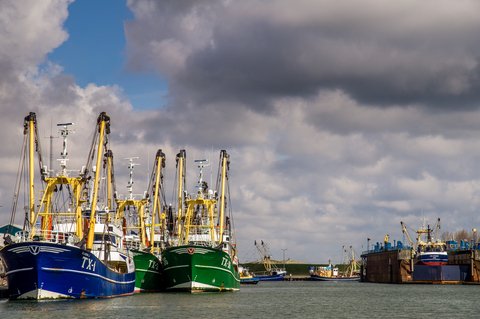Global warming doesn’t just affect the atmosphere. Increased carbon emissions also contributes to the growing acidity of the ocean, something which can dramatically alter the lives of sea creatures.
If not addressed soon, changes to the ocean chemistry along the North American west coast could be devastating. Those were the findings of a 20-member West Coast Ocean Acidification and Hypoxia Science Panel, which issued a report this week.
“Our work is a catalyst for management actions that can address the impacts of ocean acidification we’re seeing today and to get ahead of what’s predicted as ocean chemistry continues to change,” said Alexandria Boehm, co-chair of the Panel and a professor of Civil and Environmental Engineering at Stanford University, according to a press release.
The panel cited changes to west coast crab, which have had trouble growing strong outer shells, and widespread changes reported this year in a variety of other changes as proof that the time to act is upon us.
The report recommended the following action:
- Exploring approaches that involve the use of seagrass to remove carbon dioxide from seawater.
- Supporting wholesale revisions to water-quality criteria that are used as benchmarks for improving water quality, as existing water-quality criteria were not written to protect marine organisms from the damaging effects of ocean acidification.
- Identifying strategies for reducing the amounts of land-based pollution entering coastal waters, as this pollution can exacerbate the intensity of acidification in some locations.
- Enhancing a West Coast-wide monitoring network that provides information toward development of coastal ecosystem management plans.
- Supporting approaches that enhance the adaptive capacity of marine organisms to cope with ocean acidification.
While scientists debate solutions, some in the fishing industry are taking the issue into their own hands, such as Bren Smith, who recently wrote about the aquatic eco-culture he devised on the west coast.
Writing in the Observer, Bren said he always thought of global warming as an environmental issue, until he realized how much it affected the ocean.
“But I’m a fisherman. I kill things for a living. I grew up shooting moose out of my kitchen window. I never thought climate change had anything to do with my life. But it does. From my vantage point, climate change is not an environmental issue at all — it’s an economic issue,” he wrote.
After being disillusioned by the greedy and often destructive practices of commercial fishing, Bren bounced around to various fish farms before cultivating his own oyster farm in New York.
Following Hurricane Sandy, Bren was forced to re-evaluate his farm, which has been largely destroyed. The newest incarnation, working proudly today, is a 3D design that combines sea wood, scallops and oysters in an aqua-culture environment that benefits each.
“Our 3D farms are designed to address three major challenges: First, to bring to the table a delicious new seafood plate in this era of overfishing and food insecurity; second, to transform fishermen into restorative ocean farmers; and third, to build the foundation for a new blue-green economy that doesn’t recreate the injustices of the old industrial economy,” he wrote.
For more on Bren’s story visit Oberver.com.








